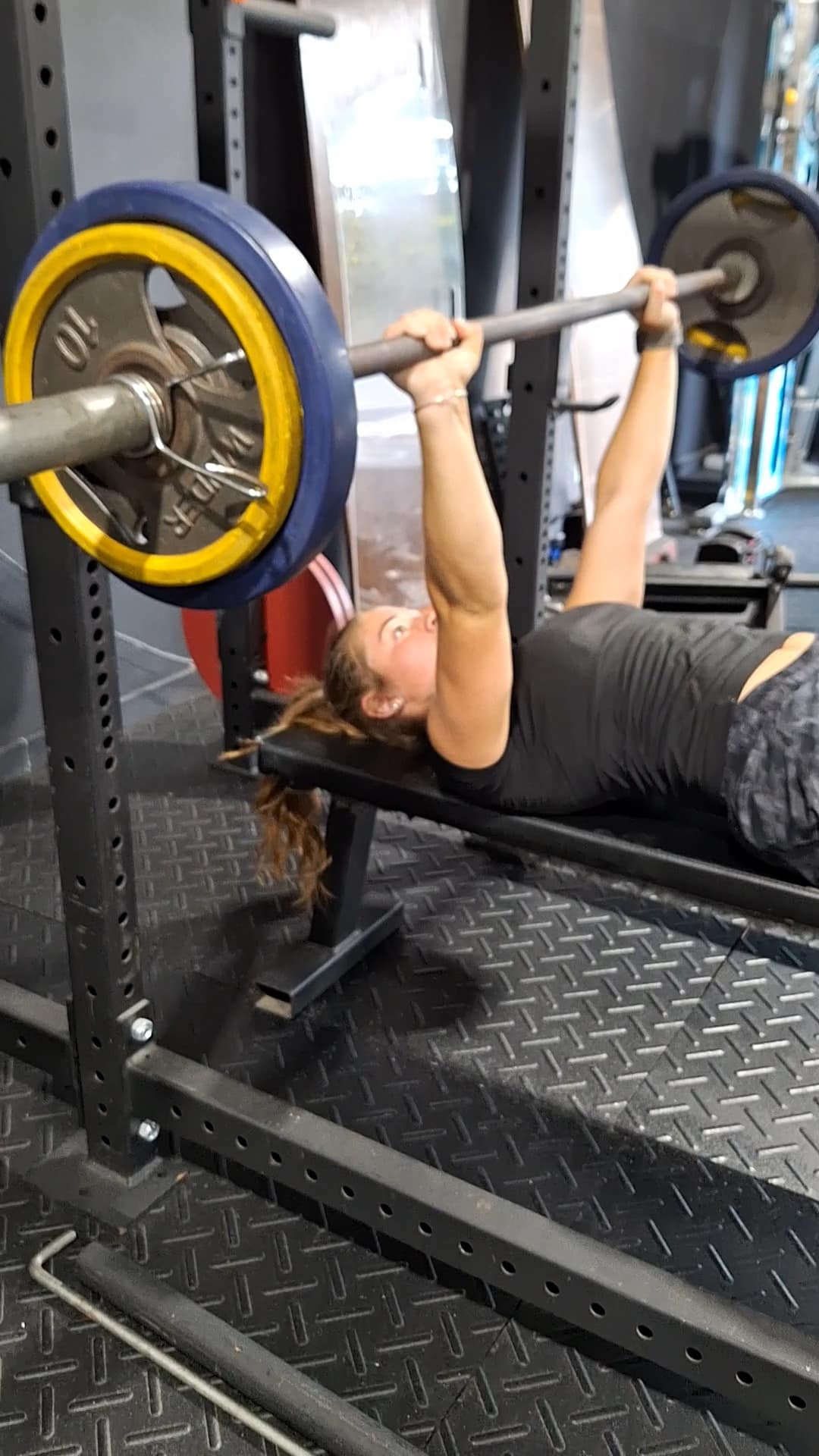
When it comes to female athletes, there seems to be a lot of myths surrounding the exercises they should and shouldn’t do. One of the most common misconceptions is that bench pressing is not healthy for women, and can be detrimental to shoulder health. However, the truth is that bench pressing can be incredibly beneficial for female athletes, especially those who participate in sports that involve throwing, or sports like tennis and or volleyball where rapid overhead shoulder extension and flexion occur. In this article, we will discuss the benefits of bench pressing for female athletes and debunk the myths surrounding this powerful exercise.
1) Builds Upper Body Pressing Strength
Bench pressing is a fantastic way to build upper body pressing strength, and elbow extensor strength, both crucial for female athletes. It works the chest, shoulders, and shoulder stabilizing muscles and joints, triceps, and even engages the core muscles. Many sports require upper body strength, including throwing a ball, hitting a volleyball, and serving in tennis. If you are playing in sports where physical contact occurs, such as lacrosse, basketball, or even soccer, then bench pressing can help female athletes develop this strength and improve their performance on the field or court.
A common objection to doing the bench press is it “is not functional for female athletes because they will never be in the position during their sport!” The problem with this train of thought is that it overlooks the concept of developing muscle and nervous system quality. It’s not totally about the exercise as much as it is about the properties being trained that have carry-over. Whether lying down, sideways, or standing, the internal structure does not care, it only generates the necessary force to overcome the resistance.
2) Helps to Reduce Injury Risk
Contrary to popular belief, bench pressing can actually help female athletes avoid injuries. Just like any other exercise, the dosage amount is important so as not to overly tax the shoulders by doing too much too frequently. Strengthening the upper body muscles can help to stabilize the joints and prevent shoulder and elbow injuries. This is especially important for female athletes who participate in sports that require repetitive throwing, such as softball or baseball. Strength at and around these joints will help provide the conditions to generate more force during activity.
However, always keep in mind that it is not possible to prevent all injuries.
3.) Increases Throwing/ Hitting Strength
As we mentioned earlier, bench pressing can increase throwing or hitting strength for female athletes in sports involving throwing. It helps to develop the chest and shoulder muscles, and improve elbow extension, which are crucial for a powerful throw. Similarly, in sports such as volleyball or tennis, a strong upper body is essential for hitting the ball with force and accuracy. When implemented and executed correctly, bench pressing will help to develop better stabilization at the shoulder joints throughout specific ranges of motion. This is key, as muscle contractions at the right time help create fluid movement around the joints.
4.) Boosts Confidence:
While this can not necessarily be measured physically, bench pressing can help to boost confidence in female athletes. A good number of female athletes are hesitant to train upper body. The ones who do have a one-up over the ones who don’t, as they can be outperformed and “out-physicaled” on the field or court, or water. As they see their upper body strength grow, and strength numbers go up, they will feel more confident and powerful on the field or court. This confidence can translate into improved performance and help female athletes reach their goals.
As you can see, developing upper pressing strength provides numerous benefits for the female athlete, contrary to the myths surrounding it. Increasing upper body pressing strength is a surefire way to not only develop true strength and power but also contribute to injury reduction when done correctly. In addition, the added confidence will give the female athlete an edge as she will become physically stronger than her competition by developing an area that other female athletes often bypass.
